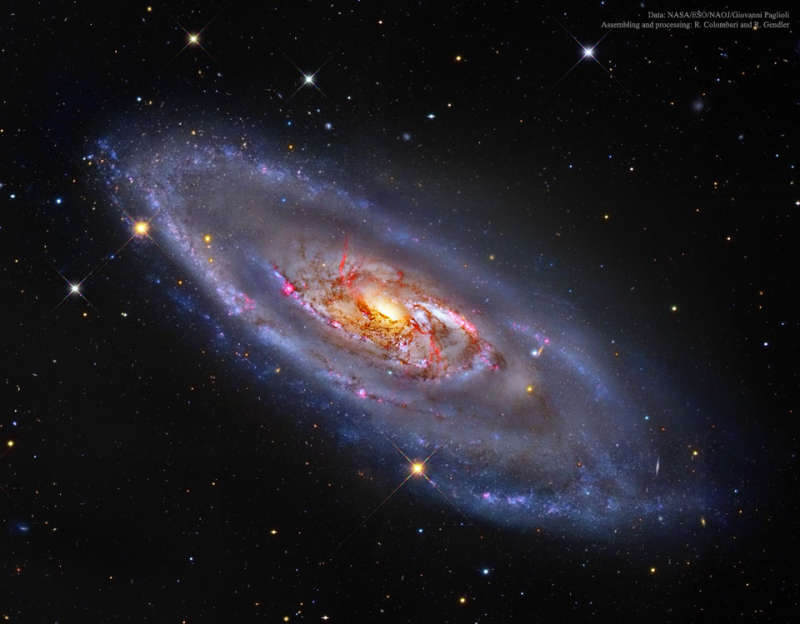Credit & Copyright: NASA,
ESO ,
NAOJ,
Giovanni Paglioli;
Assembling and processing:
R. Colombari and
R. Gendler
Explanation:
What's happening at the center of spiral galaxy M106?
A swirling disk of stars and gas,
M106's appearance is dominated by blue spiral arms and red
dust lanes near the nucleus, as shown in the
featured image.
The core of
M106 glows brightly in
radio waves and
X-rays where
twin jets have been found running the length of the galaxy.
An unusual central glow makes
M106 one of the closest examples of the
Seyfert class of galaxies,
where vast amounts of glowing gas are thought
to be falling into a central massive
black hole.
M106,
also designated
NGC 4258,
is a relatively close 23.5 million light years away,
spans 60 thousand
light years across, and can be seen with a small telescope
towards the constellation of the Hunting Dogs (Canes Venatici).
Astrophysicists:
Browse 1,000+ codes in the Astrophysics Source Code Library
1999 2000 2001 2002 2003 2004 2005 2006 2007 2008 2009 2010 2011 2012 2013 2014 2015 2016 2017 2018 2019 2020 2021 2022 2023 2024 2025 2026 |
Yanvar' Fevral' Mart Aprel' Mai Iyun' Iyul' Avgust Sentyabr' Oktyabr' Noyabr' Dekabr' |
NASA Web Site Statements, Warnings, and Disclaimers
NASA Official: Jay Norris. Specific rights apply.
A service of: LHEA at NASA / GSFC
& Michigan Tech. U.
|
Publikacii s klyuchevymi slovami:
M 106 - spiral galaxy - Seyfert galaxy - spiral'naya galaktika - Seifertovskaya galaktika
Publikacii so slovami: M 106 - spiral galaxy - Seyfert galaxy - spiral'naya galaktika - Seifertovskaya galaktika | |
Sm. takzhe:
Vse publikacii na tu zhe temu >> | |
